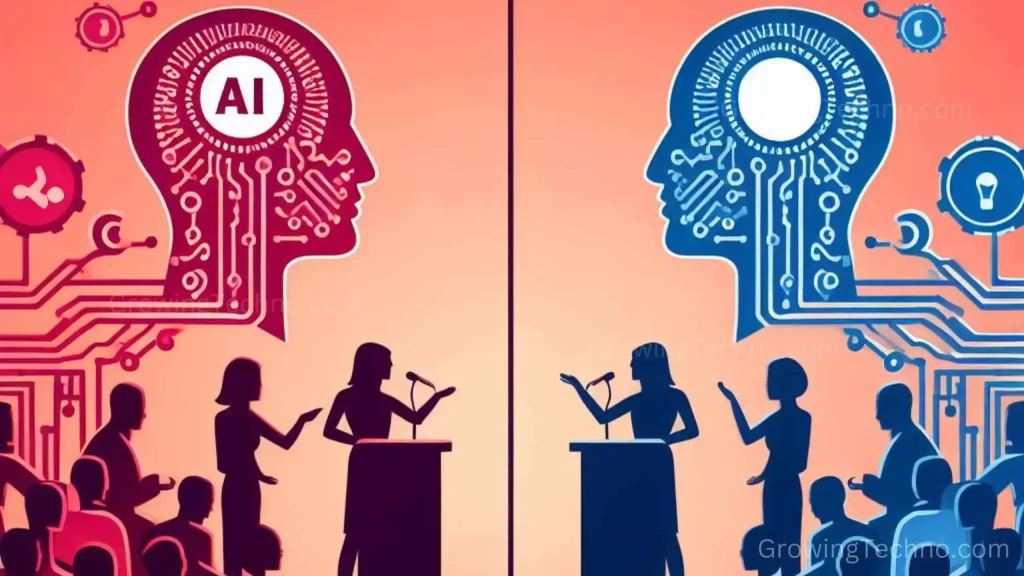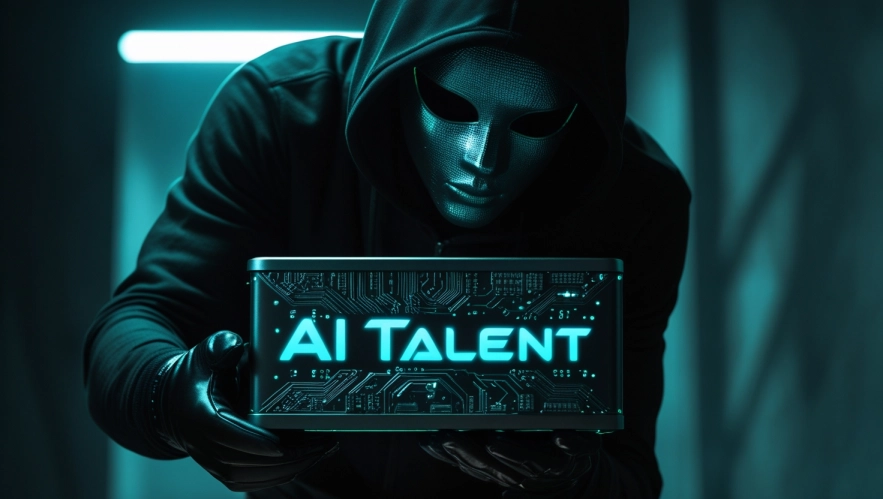
In today’s tech-savvy world, artificial intelligence (AI) is making its presence felt in various aspects of our lives, including the workplace. The use of generative AI applications, such as ChatGPT, has become increasingly common. These tools promise to enhance productivity and offer solutions to complex problems. However, a recent study by BlackBerry indicates that a significant number of organizations are considering or have implemented workplace bans on such AI applications.
The study, conducted through a survey of 2,000 IT decision-makers across North America, Europe, and Asia by OnePoll, reveals some intriguing insights. Approximately 75% of organizations worldwide are either implementing or contemplating the implementation of workplace bans on generative AI applications like ChatGPT. Their primary concerns revolve around data security, privacy, and their corporate reputation. However, as we delve into this topic, we discover that the effectiveness of these bans is a subject of debate.
The Skepticism Surrounding AI Bans
While these bans might seem like a simple solution to the potential issues raised by generative AI applications, experts in the field express their skepticism about their practicality and enforceability.
John Bambenek, a principal threat hunter at Netenrich, an IT Ops and digital security operations company in San Jose, California, believes that such bans offer little more than a false sense of security. He argues that history shows that when employees find tools that improve their productivity or quality of life, they will find a way to use them, even if it means circumventing organizational controls. With nearly every employee having a smartphone, enforcing such bans becomes a complex challenge.
J. P. Gownder, a vice president and principal analyst at Forrester Research, agrees. He points out that employees turn to generative AI tools to boost their productivity and find answers to difficult questions. He suggests that instead of banning them, employers should provide corporate-approved tools that meet their employees’ needs, ensuring both security and productivity.
Blanket Bans on AI: A Risky Proposition
Greg Sterling, co-founder of Near Media, warns that companies implementing blanket bans on AI tools may be doing so at their own peril. He believes that they risk missing out on the efficiency and productivity gains that generative AI can offer. AI is rapidly becoming an integral component of many software-as-a-service (SaaS) tools, making a complete ban impractical.
Nate MacLeitch, founder and CEO of QuickBlox, questions the actual follow-through on these bans. He suggests that while companies claim they plan to impose bans, in reality, generative AI will likely become seamlessly integrated into applications and services, albeit with certain controls.
Roger Grimes, a defense evangelist with KnowBe4, emphasizes the competitive risk associated with AI bans. He believes that as competitors begin to harness AI’s advantages, organizations may have to reconsider their bans to stay competitive.
The Unworkable Nature of Bans
John Gallagher, vice president of Viakoo, emphasizes the impracticality of banning generative AI in the workplace. He believes that at this stage of the technology’s development when its uses are evolving rapidly, bans become challenging to enforce. He questions whether organizations should ban tools like Bing because their search results incorporate generative AI or restrict employees to versions of apps that lack AI features. Gallagher contends that loosely-defined bans could do more harm than good by discrediting future enforcement efforts.
Why Ban Artificial Intelligence in the Workplace?
Workplace artificial intelligence (AI) bans are imposed for various reasons. Barbara J. Evans, a professor of law and engineering at the University of Florida, points out some key concerns. Generative AI tools can potentially provide low-quality or inaccurate information, which can be detrimental to businesses providing information services to their customers. This can result in lawsuits and reputational damage.
Privacy and security of proprietary and confidential business information is another significant concern. When employees interact with generative AI tools, they might inadvertently reveal business secrets or confidential customer information. Often, the fine print in privacy policies allows tool developers to use this information for further refinement, raising serious privacy concerns.
Companies may also implement AI bans as a matter of employee relations. In an age where people worry about being replaced by AI, banning AI in the workplace can boost employee morale and reassure them that their jobs are safe from automation, at least for the time being.
Balancing Risks and Benefits

While organizations are concerned about the potential risks associated with generative AI, Jennifer Huddleston, a technology policy research fellow at the Cato Institute, emphasizes the need to consider the benefits of the technology. New technologies like AI have the potential to improve efficiency and productivity, but they may still require human oversight to ensure accuracy.
Instead of imposing outright bans, organizations should explore alternative solutions to address their concerns while enabling employees to benefit from AI for productive purposes. The challenge lies in finding the right balance between reaping the benefits of AI and mitigating potential risks.
Evans suggests that, in the future, humans may need AI to help regulate AI. As AI technology evolves, it may become challenging for humans to catch all the errors. An AI-based peer-review system could help verify the outputs of other AI tools. However, this raises questions about whether multiple AI tools agreeing on something necessarily guarantee its accuracy.
In conclusion, the imposition of workplace bans on generative AI applications is a complex issue. While there are legitimate concerns regarding data security, privacy, and corporate reputation, experts argue that outright bans may not be the most effective solution. Instead, organizations should focus on educating employees about the risks associated with AI usage and explore ways to harness the benefits of this transformative technology while ensuring responsible and secure implementation. Finding the right balance is the key to making AI work in the modern workplace.
















